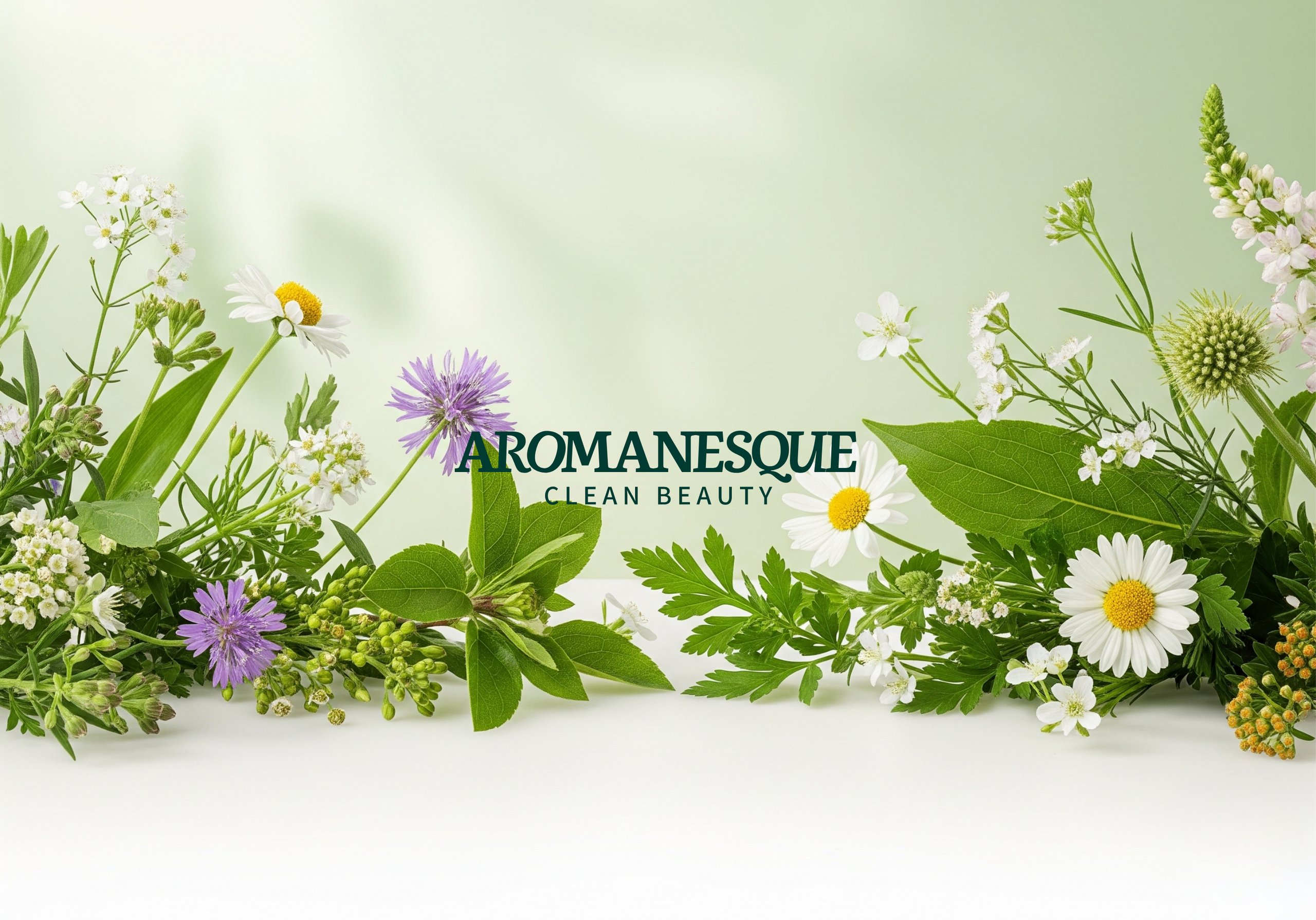I. Einleitung
In der heutigen Schönheitsbranche hat die Nachfrage nach biologischen und natürlichen Hautpflegeprodukten einen bemerkenswerten Anstieg erlebt. Verbraucher werden sich zunehmend bewusst, wie wichtig es ist, Produkte zu verwenden, die nicht nur gut für ihre Haut, sondern auch umweltfreundlich sind. Um die Authentizität und Glaubwürdigkeit dieser Produkte sicherzustellen, spielen Zertifizierungen eine entscheidende Rolle. Eine solche Zertifizierung, die im Kosmetikbereich eine große Bedeutung hat, ist die Ecocert-Zertifizierung. In diesem Artikel wird die Bedeutung biologischer und natürlicher Hautpflege untersucht und ein Überblick über die Ecocert-Zertifizierung gegeben.
II. Ecocert-Zertifizierung verstehen
Ziel der von Ecocert angebotenen COSMOS-Zertifizierung ist es, die weltweite Vermarktung von Bio- und Naturkosmetik zu erleichtern. Diese Zertifizierung garantiert, dass die Produkte umweltfreundliche Produktions- und Verarbeitungsprozesse durchlaufen haben und dabei die menschliche Gesundheit im Vordergrund steht [1]. Schauen wir uns die wichtigsten Garantien an, die die Ecocert-Zertifizierung bietet:
A. Umweltfreundliche Produktions- und Verarbeitungsprozesse:
Die Ecocert-Zertifizierung stellt sicher, dass die Produktion und Verarbeitung von Kosmetika umweltfreundlich erfolgt. Dazu gehören Praktiken, die die Umwelt respektieren und die menschliche Gesundheit in den Vordergrund stellen.
B. Entwicklung grüner Chemikalien:
Eines der Hauptziele der Ecocert-Zertifizierung ist die Förderung der Entwicklung und Nutzung umweltfreundlicher Chemikalien. Diese Chemikalien werden aus erneuerbaren Ressourcen gewonnen und haben nur minimale Auswirkungen auf die Umwelt.
C. Verantwortungsvoller Umgang mit natürlichen Ressourcen:
Ecocert legt Wert auf den verantwortungsvollen Umgang mit natürlichen Ressourcen bei der Herstellung von Kosmetika. Dies erfordert nachhaltige Praktiken, um die Erschöpfung der Ressourcen zu minimieren und das Ökosystem zu erhalten.
D. Respekt für die Artenvielfalt:
Der Erhalt der Artenvielfalt ist ein entscheidender Aspekt der Ecocert-Zertifizierung. Die Zertifizierung stellt sicher, dass kosmetische Produkte so entwickelt werden, dass die Artenvielfalt respektiert und geschützt wird.
e. Abwesenheit von petrochemischen Inhaltsstoffen:
Um die Ecocert-Zertifizierung zu erhalten, müssen Kosmetika mit Ausnahme zugelassener Konservierungsstoffe frei von petrochemischen Inhaltsstoffen sein. Petrochemische Inhaltsstoffe wie Parabene, Phenoxyethanol, synthetische Farbstoffe und bestimmte Parfüme sind ausgeschlossen, um die Reinheit der Produkte zu gewährleisten.
F. Abwesenheit von GVO:
Genetisch veränderte Organismen (GVO) haben bei Verbrauchern Bedenken hervorgerufen. Die Ecocert-Zertifizierung garantiert, dass zertifizierte Kosmetik frei von GVO ist.
G. Recycelbare Verpackung:
Im Einklang mit nachhaltigen Praktiken fördert die Ecocert-Zertifizierung die Verwendung recycelbarer Verpackungsmaterialien. Dies trägt dazu bei, Abfall zu reduzieren und den ökologischen Fußabdruck der Kosmetikindustrie zu minimieren.
Die Erlangung des COSMOS-Labels, das die Einhaltung der Ecocert-Zertifizierung bestätigt, erfordert strenge Prozesse. Die Zertifizierung kann durch Einhaltung des internationalen COSMOS-Standards oder des Ecocert-Standards erfolgen. Ecocert führt einen gründlichen Verifizierungsprozess durch, um sicherzustellen, dass die Produkte die erforderlichen Kriterien erfüllen [1]. Transparenz ist ein weiterer wichtiger Aspekt der Zertifizierung. Durch die Angabe natürlicher und biologischer Inhaltsstoffe auf den Produkten erhalten Verbraucher transparente Informationen über den Inhalt [1].
III. Kriterien für die COSMOS-Bio-Zertifizierung
Um die COSMOS-Bio-Zertifizierung zu erhalten, müssen bestimmte Kriterien erfüllt sein. Zu diesen Kriterien gehören:
A. Mindestanforderungen an Bio-Zutaten:
Damit ein Schönheitspflegeprodukt COSMOS Organic-zertifiziert ist, muss es mindestens 95 % Bio-Pflanzen enthalten.
B. Prozentsatz der Bio-Zutaten in der Gesamtformel:
Die Zertifizierung erfordert, dass mindestens 20 % der gesamten Formel, ohne Wasser und Mineralien, aus Bio-Zutaten bestehen. Bei Rinse-off-Produkten beträgt die Mindestanforderung 10 %.
C. Ausschluss von Wasser und Mineralien aus der Berechnung der organischen Inhaltsstoffe:
Wasser und Mineralien gelten nicht als biologisch, da sie nicht aus der Landwirtschaft stammen. Dieser Ausschluss ist notwendig, um eine genaue Berechnung des Anteils an Bio-Zutaten im Produkt sicherzustellen.
D. Beispiele für Bio-Hautpflegeprodukte:
Zahlreiche Hautpflegeprodukte können die COSMOS Organic-Zertifizierung erhalten. Beispiele hierfür sind unter anderem Gesichtsreiniger, Feuchtigkeitscremes, Seren und Körperlotionen.
IV. Berechtigung zur COSMOS-Label-Bewerbung
Für das COSMOS-Label können sich verschiedene Akteure der Kosmetikbranche bewerben, darunter:
A. Rohstoffproduzenten:
Hersteller, die Bio-Rohstoffe für Kosmetika liefern, können sich für das COSMOS-Label bewerben.
B. Hersteller und Marken im Kosmetikbereich:
Auch Hersteller und Marken, die sich mit der Herstellung und dem Vertrieb von Kosmetikprodukten befassen, können sich für ihre biologische und natürliche Hautpflegeserie das COSMOS-Label zulegen.
C. Verpackungsoptionen und Lieferanten:
Lieferanten von Verpackungsmaterialien spielen in der Kosmetikindustrie eine bedeutende Rolle. Um sich für das COSMOS-Label zu qualifizieren, müssen Verpackungsoptionen und Lieferanten Zugriff auf eine Datenbank mit COSMOS-zertifizierten Bio-Zutaten gewähren, von COSMOS zugelassene natürliche Rohstoffe und Duftkompositionen von Parfümeuren anbieten. Außerdem ist eine validierte Verpackung erforderlich, die den Zertifizierungsstandards entspricht.
V. Warum Ecocert wählen?
Die Entscheidung für die Ecocert-Zertifizierung bietet mehrere Vorteile:
A. Erfahrung und Fachwissen von Ecocert:
Mit fast 30 Jahren Erfahrung in der Prüfung und Zertifizierung von Bio-Produkten ist Ecocert eine vertrauenswürdige Autorität in der Kosmetikbranche. Ihr Fachwissen gewährleistet die Glaubwürdigkeit und Zuverlässigkeit der Zertifizierung.
B. Umfangreiche globale Präsenz:
Ecocert ist in mehr als 130 Ländern tätig und bietet seine Dienstleistungen auf globaler Ebene an. Diese umfassende Präsenz erleichtert Herstellern und Marken weltweit den Zugang zur Zertifizierung.
C. Unterstützung bei der Umsetzung nachhaltiger Praktiken:
Ecocert bietet Unternehmen Unterstützung und Anleitung bei der Umsetzung nachhaltiger Praktiken. Ihre Expertise hilft Unternehmen dabei, umweltfreundliche und sozial verantwortliche Ansätze zu verfolgen.
D. Garantie für Glaubwürdigkeit und Transparenz:
Die Ecocert-Zertifizierung trägt ein Garantiezeichen und garantiert Verbrauchern, dass die zertifizierten Produkte strengen Bio- und Naturstandards entsprechen. Die transparenten Informationen auf dem Etikett stärken das Vertrauen zwischen Lieferanten, Kunden und Verbrauchern.
e. Zusätzliche Zertifizierungen und Labels:
Neben der COSMOS-Zertifizierung bietet Ecocert eine Reihe weiterer Zertifizierungen und Labels für Bio- und Naturprodukte an. Diese zusätzlichen Zertifizierungen können das Engagement einer Marke für Nachhaltigkeit und verantwortungsvolles Handeln weiter stärken.
VI. Abschluss
Zusammenfassend lässt sich sagen, dass die Nachfrage nach biologischen und natürlichen Hautpflegeprodukten weiter steigt, was auf das wachsende Bewusstsein der Verbraucher für die Bedeutung nachhaltiger und verantwortungsvoller Kosmetika zurückzuführen ist. Die Ecocert-Zertifizierung durch das COSMOS-Label dient als Garantie für die Authentizität und Qualität von Bio- und Naturkosmetik. Durch die Einhaltung strenger Standards wie umweltfreundliche Produktion, umweltfreundliche Chemikalien und die Abwesenheit von GVO tragen Ecocert-zertifizierte Produkte zu einer nachhaltigeren und verantwortungsvolleren Kosmetikindustrie bei. Die Entscheidung für die Ecocert-Zertifizierung stellt nicht nur die Einhaltung biologischer und natürlicher Standards sicher, sondern verhilft Unternehmen auch zu Glaubwürdigkeit und Transparenz auf dem Weltmarkt. Die Nutzung biologischer und natürlicher Hautpflege in Verbindung mit der Ecocert-Zertifizierung fördert eine gesündere Zukunft für den Einzelnen und die Umwelt.Verweise:






